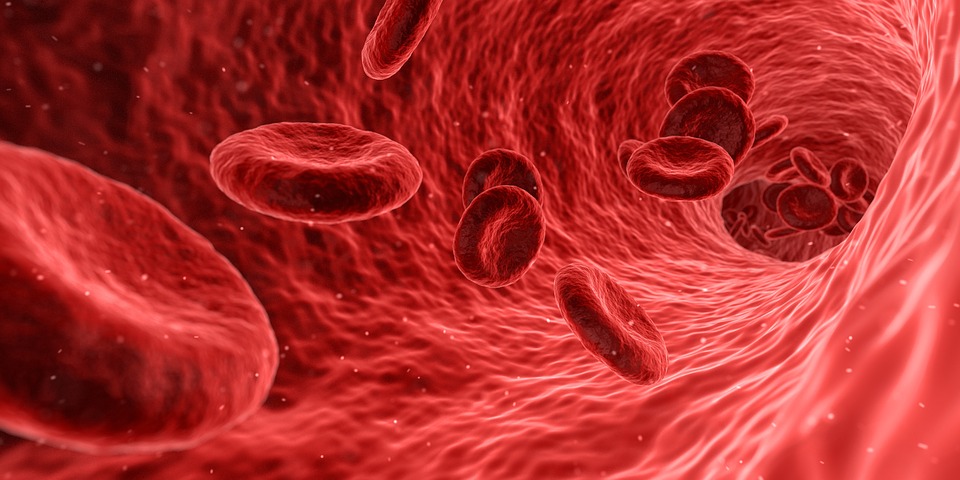
Blood
HMG-CoA reductase inhibitors are a group of drugs used to lower high levels of cholesterol in the blood. They are also known as statins and work by limiting the HMG-CoA reductase enzyme which is a key element in the cholesterol production by the liver.
While cholesterol is an important element in our body because it is involved in many functions such as: steroid hormones production, digestion process aid, healing process help, antioxidant, etc., when the fat amount in the bloodstream is too high, there is the risk of developing heart attack or stroke.
If your liver produces too much cholesterol, this fat-like waxy substance deposits on the wall of arteries creating plaques. Over time, veins become clogged up to the point of totally preventing the flow of blood which is unable to reach the organs it is destined. Failure to supply blood to the heart or brain causes heart attacks or strokes, respectively.
There are different methods to lower bad cholesterol but doctors prescribe statins when a balanced diet, physical exercise and a correct lifestyle without excesses such as alcohol and smoking are not enough to fall within the safety parameters.
Most prescribed statins
Atorvastatin (Lipitor)
Atorvastatin works in three different ways. First it reduces the amount of LDL (Low-Density
Lipoprotein) commonly known as bad cholesterol. Second, it increases the level of HDL (HighDensity Lipoprotein cholesterol), the good one. Third, Atorvastatin is also able to lower triglycerides (another type of fat in our blood). This HMG-CoA reductase inhibitor is the most powerful in the group of statins but the bad news is that it may also trigger several side effects and interactions with other drugs the patient may be already on.
Fluvastatin (Lescol)
Fluvastatin is a highly effective medication for reducing LDL cholesterol levels and it can also increase levels of HDL (“good”) cholesterol. By lowering LDL cholesterol levels, Fluvastatin can help to reduce the risk of atherosclerosis, which is a buildup of cholesterol and other substances in the walls of arteries that can lead to cardiovascular disease, stroke and heart attack.
Fluvastatin is typically taken once daily, either with or without food. The dosage depends on the patient cholesterol levels and overall health status.
Pravastatin (Pravachol)
Pravastatin is considerate the safest statin because it is generally well tolerated and patients on this drug experience fewer side effects compared to other people taking different HMG-CoA reductase inhibitors. Furthermore, Pravastatin does not interact with grapefruit juice or other medicines as it happens with other drugs belonging to this group.
Rosuvastatin (Crestor)
Rosuvastatin, in addition to slowing the enzyme essential for the cholesterol production, is also able to increase the liver ability to eliminate more LDL which is transported to that organ by HDL. Crestor may take 2 to 4 weeks for lowering your bad cholesterol level but it doesn’t work at the same timescale for all people.
Simvastatin (Zocor)
This statin is available as oral tablet or oral suspension and in the following strengths: 5 mg, 10 mg, 20 mg, 40 mg, 80 mg. Simvastatin increases the liver ability to capture and eliminate the excess of LDL. The less bad cholesterol in the bloodstream the better especially for your heart and brain. Simvastatin is one of few statins that can also be used in children aged 10 and over but always under strict medical supervision.
HMG-CoA reductase inhibitors side effects
Statins do not come without down sides, so let’s see what to expect.
Most common side effects of statins:
- Muscle pain and weakness: This is the most common statins side effect and it can range from mild to severe. In rare cases, it can lead to a serious condition called rhabdomyolysis, which is the main reason of kidney damage.
- Digestive issues: Statins can cause nausea, diarrhea, constipation, and other digestive issues.
- Headache: Some people experience headaches.
- Increased blood sugar levels: Statins can cause an increase in blood sugar levels, which can be a concern for people with diabetes.
- Liver damage: In rare cases, these cholesterol drugs cause liver damage, which can lead to liver failure.
Less common side effects of statins:
- Memory loss and confusion: Some people have reported confusion or memory loss, although the link between statins and cognitive effects is not yet fully understood.
- Sleep problems: these drugs can cause insomnia or other sleep disturbances in some patients.
- Skin rash: Some people may develop a skin rash especially on arms and legs.
- Increased risk of diabetes: some studies found that long-term use of cholesterol-lowering medication may also increase the risk of developing diabetes.
- Sexual dysfunction: In rare cases, statins can cause sexual dysfunction, including erectile
dysfunction and loss of libido.
It’s important to note that not everyone will experience the same side effects while on HMG-CoA reductase inhibitors and the benefits of these medications often outweigh the potential risks. However, if you experience any side effects while taking them, talk to your healthcare provider to discuss the best course of action or potential alternatives.
How and when should I take HMG-CoA reductase inhibitors?
Here are some guidelines about how to take statins and when during the day. Keep in mind we are not all created equal. Your needs may differ from the needs of other patients so, always refer to your family doctor for any doubts you may get during therapy.
- Take the medication as prescribed. Your doctor will indicate you the dosage, frequency, and timing of the doses. It’s important to follow these instructions carefully, as taking too much or too little of the drug can be harmful.
- Statins can be taken with or without food, depending on the instructions. Some statins should be taken with food to help with absorption, while others should be taken on an empty stomach.
- Be regular, assume cholesterol-lowering drugs at the same time every day: This can help ensure that you don’t miss a dose and that the medication is consistently in your system. Some statins are more effectively when taken at night. This is because 2 of its features. First, the enzyme that produce cholesterol is more active at night.
Second, some statins have a very short half-life (which is the time it takes for your body to eliminate half a dose of the drug). For example, pravastatin has a half-life of 3 to 5 hours, which is why it should be taken exactly when cholesterol production is at its peak. Atorvastatin, on the other hand, has a half-life of 25-30 hours so it can also be taken during the day without noticing any differences in effectiveness.
How to safely discontinue statins?
If you’re taking statins to lower your cholesterol, chances are you will stay on them for the rest of your life. Doesn’t matter if you start feeling better or if your cholesterol levels improve.
The reason why you shouldn’t stop taking statins is simple. When you take them, your cholesterol is under control and within safe parameters. If you stop taking HMG-CoA reductase inhibitors, your blood fat levels rise rapidly exposing you to serious risks of cardiovascular problems and stroke.
Before taking any action, talk to your doctor and explain the reasons why you would like to stop the treatment. The clinician will find the right procedure to follow in your specific case.
Conclusion
Statistics show that in 2018 in the United States, out of a population of 324 million people, 94 million had high cholesterol levels (over 200 mg/dL) and among these, 28 million even above 240 mg/dL. Cholesterol was rightfully included in the leading causes of death worldwide immediately after cancer and a few other pathologies.
HMG-CoA reductase inhibitors or statins are the most effective drugs for lowering blood cholesterol levels and protecting you from heart attack, arteriosclerosis, and stroke.
In addition to taking the right medications, it’s also important to follow a healthy lifestyle to manage high cholesterol. This may include eating a healthy diet, exercising regularly, maintaining a healthy weight, and not smoking or drinking alcohol. don’t forget that your doctor is your best ally against high blood fat levels. Talk to him often and share all your doubts with him.






